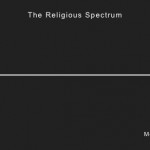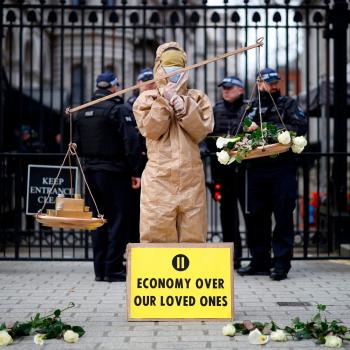I can’t help but adamantly disagree with penal substitutionary atonement, being preached to the poor and the powerless. It’s not that I don’t like Calvin (although, I don’t), it’s that I believe at its core penal substitutionary atonement is toxic. Penal substitutionary atonement says that Jesus died for our sins, substituting our place on the cross, taking on our punishment, atoning for our sins and therefore defeating death as we know it (1 Peter 2:24). **Crowd cheers**
It’s subversively subtle in its shaming and coercive victim blaming. It sounds beautiful and self-sacrificial all while managing to amp up our testosterone level.
It puts a spin on something otherwise abusive when internalized by the wrong people (e.g. oppressed, underprivileged, suffering, etc.).
Matter of fact, this is a scarily similar method commonly used by abusive people, or cult leaders, to manipulate their counterparts (or victims) into staying with them and/or joining alongside them (#EasterSunday). It creates a sense of dependency. This model is, inadvertently, identified and widely accepted by psychologists at large. It’s called the “trauma cycle.”
It’s not so much that Christ died for the oppressed persons sins, it’s that Christ came as a human to stand with the oppressed suffering because of the sins inflicted upon them by the privileged.
To order the oppressed person to pick up and carry their cross, it assumes that they have not already been nailed to a cross. Penal substitutionary atonement, dangerously and inadvertently, ignores the plight of those suffering. I don’t believe Christ came to order the oppressed to carry their cross, but to embody the life of the oppressed, stand in solidarity with the oppressed, and die alongside of the oppressed.
Perhaps Penal Substitutionary Atonement is what Christ intended to preach to the privileged elite, the pharisaical, and the oppressor himself: In order to be his disciple you must give everything up and follow him; emulate the life of Christ’s by becoming one with the poor and powerless (e.g. the oppressed).
The issue is, everybody wants to be the messiah, but nobody wants to emulate the life of Christ. Sure, Jesus dined with the elite, but we must not miss the fact that he also died for the poor and powerless.
Jesus wants us to be transformed by the uncomfortable, while so much of the church wants to remain conformed to the comfortable.
Christ, He came to die with the oppressed and atone the sins of the oppressor. But, yet I believe today he’s still looking at the evangelical Pharisee’s and the privileged one percent shouting from the Cross they nailed him to “Why do you call me, ‘Lord, Lord,’ and do not do what I say (Luke 6:46)?”
Why Did God Kill Jesus?
God did not kill Jesus; “sinners” did not kill Jesus; privileged elite who refuse to love the other, they killed Jesus. To accept penal substitutionary atonement as the gospel is to wrongfully depoliticize the cross of Christ.
The call is not to be Christ and become a savior dressed as batman; the call is to become one with the poor and the powerless.
What made Jesus so amazing was not him being the messiah; he was greater than any messiah; he stepped off of his throne and into this world and suffered with humanity (not just for), offering us dignity and creating momentary glimpses of heaven on earth.
What then is the true gospel? Is violence and penalty a necessity to be self-inflicted by the privileged? Does the Christus victor theory of atonement a viable option in place of penal substitutionary atonement?














